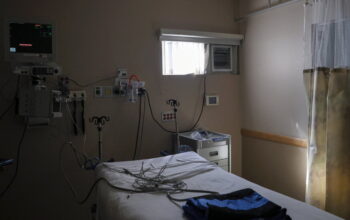
The F.D.A. said the new approach would be gender-inclusive — the screening would also apply to women who have sex with gay and bisexual men — and would focus on individual risk, not blanket prohibitions on groups. People seeking to donate blood will be asked about their recent sexual activity and partners, as well as injectable drug use.
Potential donors will be asked whether they have had new sexual partners, or more than one sexual partner, in the past three months. If so, they will also be asked whether they engaged in anal sex. If they report such activity, they will not be permitted to donate at that time.
People who do not report new or multiple partners along with anal sex will be permitted to donate.
In addition, anyone who has tested positive for H.I.V. or who has taken medication to treat an H.I.V. infection will be prohibited from donating, said Dr. Peter Marks, director of the agency’s biologics center.
People taking oral PrEP, to prevent H.I.V. infection, will not be able to donate blood until three months after their last dose. The rationale is that blood centers may not be able to detect an H.I.V. infection in donors taking the drugs, Dr. Marks said. People receiving injectable PrEP will be barred for two years after their last dose.
“Importantly, this approach will not change the testing policies and procedures that are required of blood establishments,” which will still screen all blood donations for H.I.V. and hepatitis C and other conditions, Dr. Marks said.
The proposed guidelines were a step forward, said Tony Morrison, a spokesman for GLAAD, an advocacy organization.
“The fact that time-based deferrals for queer men are being completely eliminated is what we’ve been calling for for a very long time,” he said. “We’re finally elevating science over stigma.”



